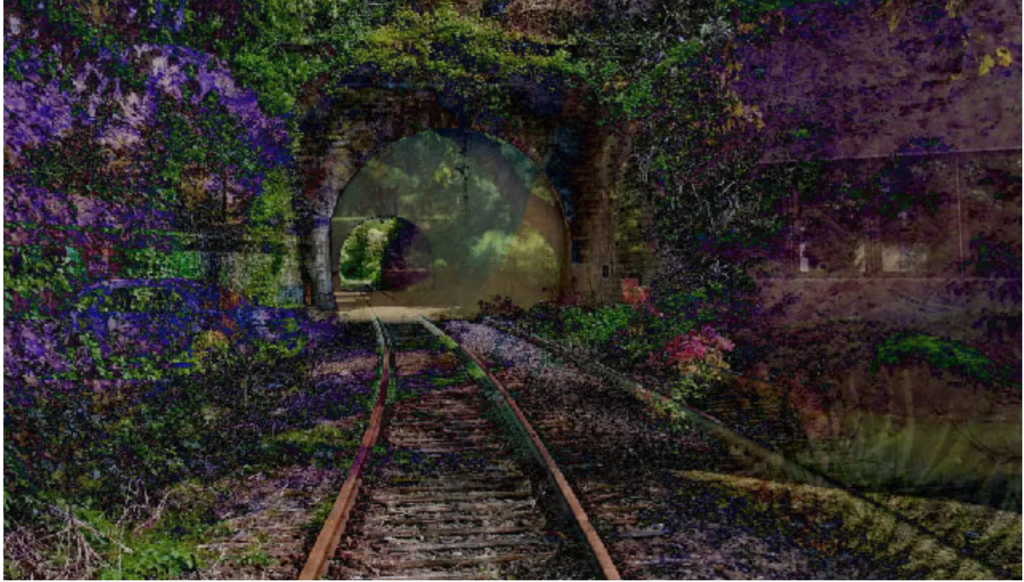
Stephen Thaler’s AI-generated artwork cannot be copyrighted. (Source: Steven Thaler/Creativity Machine)
Judge Sides with Human Beings in Ruling Determining Creative Rights
A federal judge’s recent ruling has shined a light on an issue that could affect the writers and actors striking in Hollywood for more than 100 days. One of the significant issues in the strike concerns AI and how it will be used going forward. And more importantly, who will get paid for the work created by AI for movies and television?
The ruling was delivered in an order turning down Stephen Thaler’s bid challenging the government’s position refusing to register works made by AI. Copyright law has “never stretched so far” to “protect works generated by new forms of technology operating absent any guiding human hand,” U.S. District Judge Beryl Howell wrote.
In 2018, Thaler, chief executive of neural network firm Imagination Engines, tried to register an artwork called “A Recent Entrance to Paradise” as being authored by an AI system called the Creativity Machine. The Copyright Office turned him down, citing “the nexus between the human mind and creative expression” as the key to justifying protection.
Thayler Denied
“Human involvement in, and ultimate creative control over, the work at issue was key to the conclusion that the new type of work fell within the bounds of copyright,” Howell wrote.
This is not the first ruling that finds AI is not equal to humans in reference to creating various art forms. Whether digitally or with oil paints, several previous rulings found the creative process of a computer begins with what a human has created in their mind or imagination.
In one of the leading cases on copyright authorship, Burrow-Giles Lithographic Company v. Sarony, the Supreme Court held that protection can be extended to photographs as long as “they are representative of original intellectual conceptions of the author,” with authors defined as being human.
“Copyright law wasn’t designed to reach nonhuman actors,” Judge Howell said.
In March, the copyright office affirmed that most works generated by AI aren’t copyrightable, but clarified that AI-assisted materials qualify for protection if a human “selected or arranged” it in a “sufficiently creative way that the resulting work constitutes an original work of authorship.”
It remains to be seen what effect if any this ruling has on the actors and writers who are walking the sidewalks in Los Angeles in protest. The future use of their images and other works will mean a paycheck for them if the strike succeeds.
read more at hollywoodreporter.com







Leave A Comment